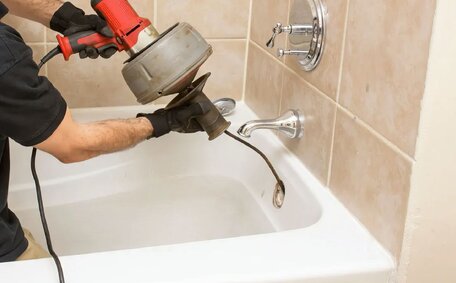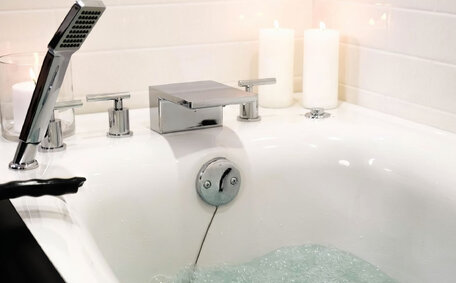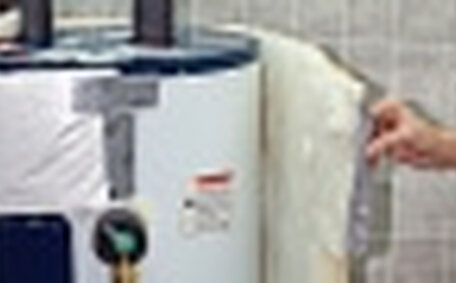Introduction to hot water systems
Understanding the operation of your hot water system is crucial for problem diagnosis and efficiency enhancement, potentially cutting energy expenses. This guide elaborates on the functioning of different hot water systems, such as heat pumps, and their efficient application across Australia.
Electric storage units, commonplace in many Australian residences, constitute the predominant electric hot water system. Other significant types encompass gas systems, heat pumps, solar models, tankless versions, and hybrid systems.
Electric storage hot water systems consist of an insulated tank for water heated using an electric element. The central function of a water heater is to heat water, retain the heat and circulate it to taps upon demand.
This article delves into the operation, energy use, efficiency enhancement, upkeep, and problem-solving of hot water systems to help you optimise performance and save costs.
Types of hot water systems
Multiple hot water systems are commonly used in homes and businesses in Marrickville and Sydney:
Electric storage
Electric storage water heaters feature an insulated tank that heats and stores water until needed. These systems appeal due to their lower initial cost, although their operating expenses may be higher.
Gas storage
The cost to operate gas water heaters often runs lower than standard electric tariffs.
Solar hot water
Solar hot water systems harness energy from roof-mounted collectors to heat the water, making them more efficient and energy-saving, despite a higher initial investment.
Heat pump
Heat pump water heaters intelligently extract heat from the air to warm water, using less electricity than traditional systems, though they come with a higher purchase price.
Tankless/Instantaneous
Tankless hot water units provide a continuous flow of heated water as it moves through the device, eliminating the need for a storage tank.
Both gas and electric hot water systems heat water using unique methods that ensure efficient water heating. Electric tankless units employ heating elements for instantaneous water heating. There is no wait for continuous flow hot water, but water storage rate can sometimes be limited.
Hybrid heat pump
Hybrid heat pump systems couple an electric heat pump unit with a gas or electric element backup. This provides energy efficiency with the reliability of inline heating when extra demand is needed.
Key components of a hot water system
While different type system hot water heaters work in various ways, they share some common key components that enable them to heat and deliver water on demand:
Storage tank
Hot water systems with insulated storage tanks keep water hot for use, available in sizes from 50 to over 400 litres.
Heating unit
The heating unit, the 'heart’ of the system, is responsible for the process that turns cold water entering the tank into hot water. Electric, gas, solar, and heat pump systems each utilise varied methods to ensure water is heated adequately.
Thermostat and sensors
A thermostat monitors water temperature in the storage tank and controls the heating unit to maintain a preset optimal temp, typically between 60-75°C depending on usage. Sensors also measure incoming cold water temp.
Relief valve
A pressure relief valve, attuned to the water pressure, serves as a critical safety feature that opens upon detecting undue pressure build-up from heated water or system discrepancies. This prevents explosion risk.
Sacrificial anode
Inside most hot water heater tanks sit a sacrificial anode rod made from magnesium or aluminium alloy. It corrodes over time to protect the tank. Replacing this regularly extends water heater lifespan.
Dip tube
A dip tube funnels incoming cold water to the tank’s base, where it’s warmed before rising to the hot water outlet. This ensures maximal efficiency even when hot tap is utilised.
Hot water outlet
Heated water ascends to the top of the tank via the hot water outlet pipe, distributing to any hot tap turned on and appliances within the premises when required.
Understanding the function of each system component is key in identifying issues with hot water taps and conducting repairs.
How different hot water systems work
Electric water heaters use internal heating elements to warm water within the tank, controlled by thermostats that maintain temperatures between 50-60°C. Hot water is then dispensed from the top of the tank upon demand.
Upon opening the hot water tap, cold water flows into the tank’s bottom through the dip tube and warms as it rises.
Gas storage systems efficiently heat water using natural gas or LPG, transferring heat via a heat exchanger or by direct contact with the tank, allowing heated water to flow out on demand.
In solar hot water systems, pumped glycol fluid is heated as it passes through solar thermal collectors on the roof. This fluid then flows through a heat exchanger which effectively transfers heat to water. The hot water travels to an insulated storage tank ready for use as required.
Heat pump water heaters operate on a refrigeration cycle to heat air around the unit and transfer it to water within an insulated tank via a heat exchanger. Fans and compressors pump water through this cycle while sensors and thermostats maintain optimal water temperature.
Tankless water heaters instantly heat water on demand as it flows through the unit. A flow sensor detects water flow and activates the heating unit.
Gas tankless systems burn gas in a heater, providing flow hot as water is warmed while passing through. Electric tankless models use resistive heating elements.
Hybrid heat pump systems couple an electric heat pump unit with an inline gas or electric heating element as backup. The heat pump extracts ambient heat to warm water during normal operation. During peak demand, the backup heating element activates to ensure continuous hot water supply.
Troubleshooting common hot water system issues
Some of the most common hot water system problems we encounter in Marrickville include:
Insufficient hot water or no hot water
If you lack hot water supply or experience drops in water temperature, typical reasons can include:
- Faulty heating element (electric systems)
- Pilot light out or faulty gas burner (gas systems)
- Worn thermostat
- Broken dip tube
- Dead anode rod
- Sediment buildup in tank
- Leaking valves
- Undersized system
- Faulty heat pump
- Blocked solar collectors
How do you test? Try running only one hot water fixture first to test. An electrician or licenced plumber can troubleshoot further.
Dripping taps or leaks
Leaks are commonly caused by:
- Corroded/cracked outlet pipes
- Defective temperature/pressure relief valve
- Loose tap washers
- Tank corrosion leaks
System overheating
Overheating is often due to issues with the thermostat or relief valve:
- Stuck open or faulty relief valve
- Runaway electric heating element
- Failed thermostat
- Undersized unit
- Wrong temperature setting
Turn off power/gas and water supply ASAP if the system is overheating. Then contact a plumber urgently.
Noisy operation
Loud noises from expansion, boiling water or rattling pipes can have various causes:
- Excessive pressure buildup
- Loose parts like anode rod
- Sediment buildup in tank
- Excessive water temperature
- Damaged heat exchanger (in heat pumps)
A plumber can help diagnose and fix the causes of persistent noises even when there are no leaks.
For professional assistance, contact the team at Marrickville Plumbing on 1300 349 338 or email us
Maintaining your hot water system
Routine maintenance is vital for the durability, efficiency, and dependability of your water heater. Annual check-ups by a licensed plumber are advised.
During routine maintenance, a plumber will:
- Inspect the unit for leaks, corrosion and potential faults
- Flush the tank to remove sediment buildup
- Check and replace anode rods if required
- Confirm correct water temperature and pressure
- Test functionality of electrical components and gas burners
- Verify safety devices like relief valves are operating properly
- Clean solar collectors and sensors (for solar systems)
Regular professional upkeep lengthens the life of your water heater, increases efficiency, and ensures safety. Additionally, perform monthly checks for leaks and arrange prompt repairs when necessary.
For expert assistance maintaining your hot water system in Marrickville, contact our team at Marrickville Plumbing on 1300 349 338 or email us to book your next maintenance check.






